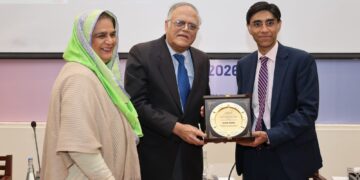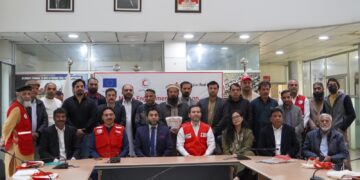Women are the heart of the family and a family is the basic unit of civilized society. If women are emotionally, physically, and spiritually healthy than the society will be healthy as well. If women are broken, unhealthy and depressed then society will be unhealthy and depressed as well. Women are the superglue that hold together the whole family unit, thus hold together society. Without healthy, strong and determined women, society is indeed in a detrimental state. A healthy woman will have a healthier child. It’s a reality, women who are healthy are more able to bear healthy infants and raise healthy children. Women who are physically, mentally and emotionally healthy are more able to raise their children to be decent examples, good citizens, and to inspire and encourage them for better education.
While part of this is due to their reproductive and sexual health needs, they also have more chronic health issues such as cardiovascular diseases, cancer, mental illnesses, diabetes, osteoporosis and anemia. Women have a physiological process called menstruation occurring every month in specific days, some women suffer from heavy periods menorrhagia (A flow of more than 80 ml (or 16 soaked sanitary products) per menstrual period is considered menorrhagia). This physiological process may bring women to have iron deficiency anemia. In most of developing countries more than one third of women have anemia. Blood contains iron within red blood cells. Women with heavy periods are at higher risk of iron deficiency anemia because they lose blood during menstruation. Moreover, Slow chronic blood loss within the body, such as from a peptic ulcer, a hiatal hernia, a colon polyp or colorectal cancer also can cause iron deficiency anemia in women.
Every woman needs to increase their calcium intake to reduce the risk of osteoporosis and other calcium deficiency diseases. The decline in the level of hormone estrogen during menopause reasons a woman’s bones to thin faster. Hypoparathyroidism (a hormonal disorder) may also become a reason of calcium deficiency disease. In most of developing countries, majority of women are suffering from thyroid diseases due to iodine deficiency. Moreover, getting enough iodine is especially important for pregnant and breastfeeding women, as they have higher needs. An iodine deficiency may cause serious side effects, especially for the baby, such as stunted growth and developmental problems.
Goiter is also more common in women than in men and especially in women before menopause. A thyroid gland produces thyroid hormone, which controls many activities in body. Diseases of the thyroid gland makes it to produce either too much or too little of the hormone. Depending on the amount of hormone produced by thyroid gland most of women may often feel restless or tired, or they may lose or gain weight, because women are at higher risk than men to have thyroid diseases, especially right after pregnancy and after menopause. When thyroid gland becomes overactive and makes too much thyroid hormone, that person is said to be hyperthyroid. The most common reason of hyperthyroidism in women is the autoimmune condition, generally known as Graves’ disease, where antibodies target the gland and cause it to speed up hormone production. It is caused by irregular and abnormal immune system response that causes the thyroid gland to produce too much thyroid hormone. Graves’ disease is most common in women over age of 20 years.
In developing and under developed countries majority of women spending most of time at their homes, so their exposure to sunlight is very limited, which caused deficiency of vitamin D. In one recent study, Women with vitamin D deficiency were nearly twice as likely to experience bone pain in their legs, ribs or joints compared to those with blood levels in the normal range. Low blood levels of vitamin D is a major contributing factor to bone pain and lower back pain. Different case studies have shown that very low blood levels can cause fatigue that has a severe negative effect on quality of life. In most of cases, women who complained of chronic daytime fatigue and headaches were found to have very low vitamin D blood level. Symptoms of bone pain and muscle weakness means patient may have a vitamin D deficiency. Women are with low blood levels of the vitamin D at higher risk of cardiovascular disease, cognitive impairment in older ladies, Severe attacks of asthma and cancer. Vitamin D deficiency leads to secondary hyperparathyroidism due to low serum calcium. This condition can result in high bone turnover, increased bone resorption and the development of osteopenia, leading to rickets in children and both osteomalacia and osteoporosis in women. Vitamin D could play a major role in the prevention and treatment of a number of different diseases, including type1 and type 2 diabetes, osteoporosis, hypertension, glucose intolerance, and multiple sclerosis.
Pregnancy is 200 to 300 times deadlier in developing and under developed world if there is lesser gap between pregnancies, malnutrition and poor antenatal facilities. At the same time in developing countries neonatal mortality is 14 times higher than developed world. According to research from the University of British Columbia, when moms wait at-least 12 to 18 months to get pregnant again, both they and their babies have a lower risk of encountering health problems. In a recent research it is proved that all infants had a greater risk of health problems if moms got pregnant less than a year after giving birth to their last child. Those women are at higher risk of spontaneous preterm birth or giving birth before 37 weeks of pregnancy. Compared with babies conceived 18 months to 23 months after previous pregnancy, research shows that a short gap between pregnancies may mean your baby’s more likely to be born premature, have a low birth weight, small for gestational age. All risks are particularly increased if a woman have a gap of six months or less. It is understandable that body needs time to recover from the stress of last pregnancy and to replenish its nutrients.
If previous baby was born by caesarean section it is advised to have a gap of at least one to two years before becoming pregnant again. This is especially important if woman want a vaginal birth. If gap between pregnancies is more than 2 years then there’s only a very low risk of caesarean scar tearing during a vaginal birth, but this risk is increased significantly if the gap between pregnancies is less than six months.
Majority of women in developing world are mostly malnourished, having protein-energy malnutrition and micronutrient deficiencies. This continues to be a major health burden in developing countries. It is worldwide the major risk factor for illness and death, with millions of pregnant women and young children particularly affected. Deficiencies of iron, iodine, vitamin D, A and zinc are the main manifestations of malnutrition in women living in developing and under developed countries. In these communities, a high prevalence of poor diet and infectious disease regularly unites into a brutal circle.
Although treatment protocols for severe malnutrition have in recent years become more efficient, but majority of women, especially in rural areas, have little or no access to formal health services and are never seen in such basic health providing units. There is serious need for interventions to prevent protein-energy malnutrition in women through promoting food supplementation schemes for breast-feeding mothers, whereas micronutrient deficiencies would best be addressed through food-based plans such as dietary variations through home gardens and small livestock like chickens, eggs, milk and yogurt. The fortification of salt with iodine has been a global success story, but other micronutrient supplementation schemes have yet to reach vulnerable female populations sufficiently. To be more effective, all such steps and interventions need to be associated with nutrition-education campaigns and health interventions. To achieve the hunger- and malnutrition related developmental goals, we need to address poverty, which is clearly associated with the insecure supply of food and nutrition in under developed areas of developing countries.
We should keep in mind that malnutrition in women continues to be a major public health problem throughout the developing world, particularly in south Asia and Africa. Due to gender discrimination women there are frequently deficient in macronutrients and micronutrients or both. The high prevalence of bacterial and parasitic diseases in women living in under developed areas of developing countries contributes greatly to malnutrition there. Similarly, malnutrition increases one’s susceptibility and severity to infections, and is thus a major component of illness and death from diseases. Malnutrition and undernourishment are the major important risk factors for the burden of disease in developing countries. Malnutrition is the direct cause of about 300000 deaths per year and is directly responsible for more than half of all deaths in women, young girls and children. Poor nutrition in women and girls means they are more likely to suffer from infectious diseases. So, good food, essential vitamins, minerals and proper nutrition is a key component of empowering women and girls.
Woman is the bunch of hormones, majority of women experience mood swings before, during, or after menopause and post-menopausal age due to hormonal changes. The drop in estrogen level can cause tiredness, fatigue, irritability, and difficulty concentrating. A proper education and counselling for women and their life partners can help women to deal with emotional changes caused by menopause, perimenopause and post-menopause. How might menopause lead to mood swings? During the changeover to menopause, levels of the estrogen hormone drop, causing wide-ranging changes throughout the body. Many of these changes have direct connections to menopausal mood swings. The drop in estrogen can cause fatigue, irritability, difficulty in concentrating, hot flashes, cold flashes, emotional changes and trouble sleeping.
Maintaining women Health is vital to a country’s overall health and welfare. Global statistics show that the health of the country is directly linked to the overall health of its mothers, sisters, wives, and daughters.
By- Dr Faisal Khan,
M.B.B.S, SMLE, MPH, MCPS, MRCPCH-UK (Scholar)
Al-Dar Hospital Madina Munawara, Saudi Arabia.



















